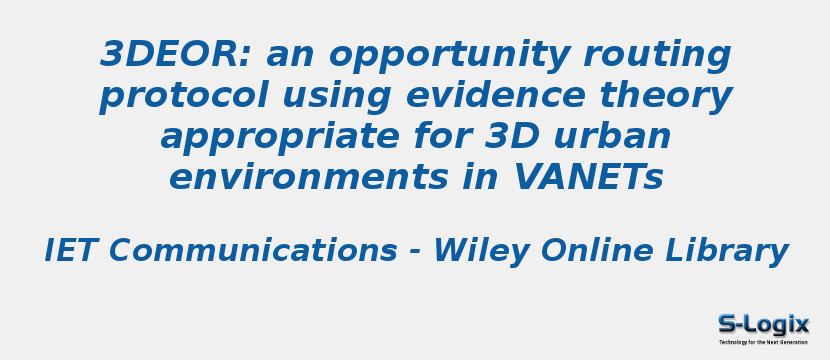Research Area: Vehicular Ad Hoc Networks
The vehicular ad hoc network (VANET) is a promising technology to improve the comfort and safety of passengers, roads and urban traffic. Applications applied to VANETs require efficient routing protocols. Urban environments include tunnels, subways, overpasses, and multilevel highways, which indicate the multilevel information environment and specific conditions of radio channel dissemination. In this paper proposed a three-dimensional (3D) evidence theory based, opportunistic routing protocol, called 3DEOR, which address the above issues using a new hybrid criterion called PAL. The PAL criterion includes three metrics of packet delivery probability to compensate for unreliable dissemination environments, packet advancement appropriated to 3D environments to reduce the number of hop counts and level to improve link connectivity. Prioritise the relay set members based on the new criteria to select the best relay node. In cases where there is no certainty, the evidence theory can be a good choice for combining the three metrics of the PAL criterion. The simulation results show the superiority of the proposed protocol over the 3D link state aware geographic opportunistic (3DLSGO) and 3D greedy perimeter stateless routing (3DGPSR) protocols in network performance indices such as packet delivery rate, end-to-end delay and average hop count.
Keywords:
Author(s) Name: Elham Bozorgzadeh ; Hamid Barati ; Ali Barati
Journal name: IET Digital Library
Conferrence name:
Publisher name: Wiley
DOI: 10.1049/iet-com.2020.0473
Volume Information: Volume 14, Issue 22, 27 December 2020, p. 4022 – 4028
